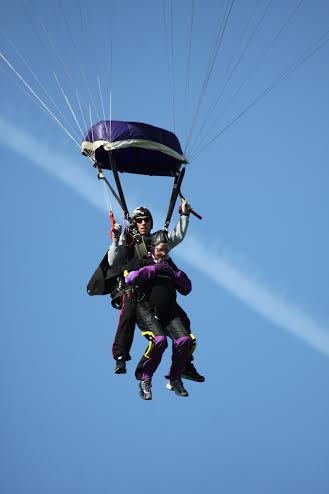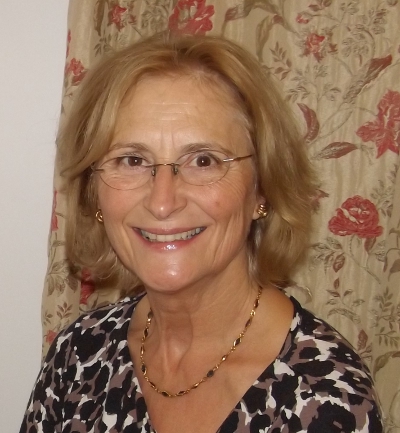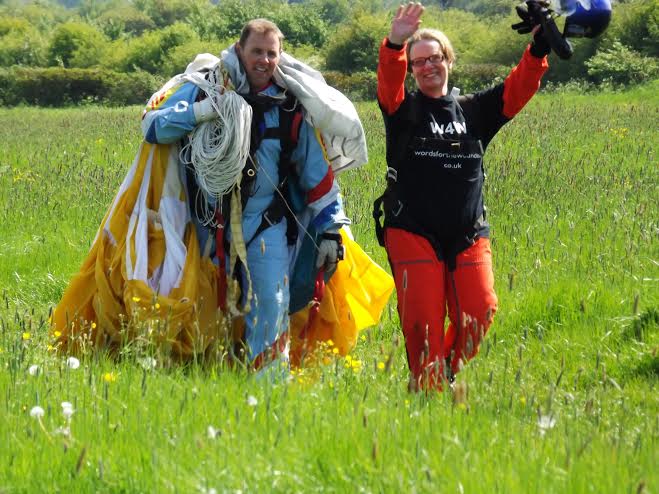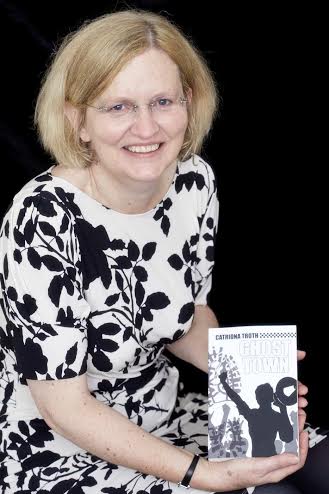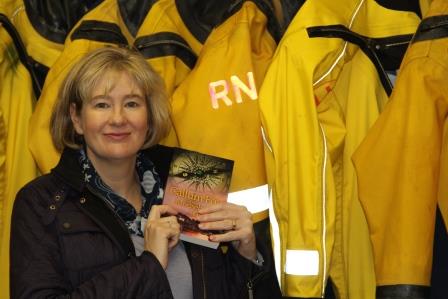Jeremy Drysdale is an incredibly talented scriptwriter. I first came across his work after watching Grand Theft Parsons, I then badgered him until he gave me an interview. It has lots of great advice for wannabe scriptwriters.
Did you always want to be a writer?
I did, yes. I started out in advertising in my late teens and quickly became a copywriter. I enjoyed writing advertising and I learned the importance of words, because for the most part one had to throw away anything extraneous and concentrate on getting the message across in the most efficient way. I became a creative director – first of a small agency and then, eventually, a big communications consultancy. After a few years, I decided that I would like a bigger challenge and looked for ways to move into longer-form writing. All I knew is that I didn’t want to write novels, because they required too many words and I’m quite lazy.
How did you get into script writing?
I was the co-Creative Director of a company called Visage when I read a report in the Hollywood Reporter, or perhaps Variety, which mentioned that an American production company called Rhino Films – part of the Warner Bros empire – had optioned the book ‘No Irish, No Blacks, No Dogs’; the autobiography of John Lydon (AKA Johnny Rotten.) I was cheeky – you have to be, I think – and found out who was producing for Rhino. Then I contacted him and told him that the project had to be written by an Brit, because punk was a British phenomenon (although in hindsight, I think the Stooges might actually be the first punk band – and they were American) and that I was an expert on the genre. Which was not strictly true.
I got lucky, because the producer was a lovely guy called Stephen Nemeth and he gave me an ‘in’; I could compete for the job against American writers, as long as I sent in an acceptable sample and came out to LA to pitch directly to Lydon. Well, I did have a sample, which I immediately rewrote over 48 hours to make it edgier and then I flew out to LA to meet everyone. Obviously, I was paying my own way and so I flew out on a shoestring and booked the cheapest hotel in town and I met with everyone at a lovely table at a fantastic place called Shutters on the Beach in Santa Monica. I pitched my take on the story to seven or eight people: the studio guys, the finance people and Lydon and his manager and I wasn’t going to lose. Luckily, my determination and the huge amount of work I had put into the pitch worked and I was offered the job. Although I later discovered that I nearly didn’t get the gig because they thought I was an alcoholic as I had drunk four bottles of beer over the three hours we sat at the table! Then I caught flu and poor Stephen Nemeth had do leave cartons of soup outside my hotel door every day for a week, which is probably another story.
The film never actually got made, but the script was good enough to get me an agent and was a perfectly usable writing sample. I also got paid, which was nice.
What is your proudest achievement?
In writing? I suppose it would be Grand Theft Parsons, as it was the first of my projects to get made. Although Battlefield 2: Modern Warfare made much more money.
What is your writing process?
I spend a very long time working on a step-outline in order to check that the structure is correct and my story will be properly told at the end of the process. So every single scene is written down in a programme called Final Draft and then I check it against a list I nicked from a terrific book called Save the Cat, which is the only instruction book that new screenwriters will need, to make sure that everything is correct structurally. And then I just have to put in the dialogue.
To give you an idea of time spent, I work for a couple of weeks on character outlines – so I know exactly who my people are and how they’ll behave in any given situation. I know how they speak, how they dress, how they look and what their sexuality is. I could tell you what music they listen to, how they would vote and what sports they like. You have to know and love your characters, even if they are utterly loathsome to everyone else.
The step-outline itself will take about six weeks and then the dialogue will take another four. I wait two weeks before reading the thing, so by the time I am ready for the rewrite I have already spent three and a half months on the project. The rewrite will probably take another three weeks and then I’ll wait a week and do another two-week draft. At that stage, hopefully, the script will be ready to show to my agent and a couple of close industry friends. I will absorb their notes and spend another couple of weeks on the next draft. Then, assuming everything has held together, I’ll have a draft which is ready to send out to studios and producers. That’s nearly six months on each project and if you assume that only one in seven will get made (and bring in decent money) you can see why screenwriters need to be well-paid for the projects that do progress. Which is not really happening these days.
Favourite film?
What a hard question! I suppose I’ll be a bit dull and say Godfather 2, which is the film I have watched the most. I love the scope and the wonderful, vibrant, full characters. And the music. And the… everything. I love everything.
Favourite script?
Se7en. It’s as close to being perfect as any script I’ve ever read. The characters are great, their motivations are absolutely clean and the story – oh, what a story. And what a twist! When John Doe turned himself in, I remember thinking ‘what the fuck?’ and being very disappointed, because I was used to the standard ‘detective chases killer’ story. And then this wonderful script turned that convention onto its head. Glorious!
You wrote Grand Theft Parsons, a film I love, how did the film come about?
I had vaguely heard the story about a guy stealing his best friend’s body in order to fulfil his last wishes and burn it in the desert, and so I did some research and discovered that it was actually Gram Parsons’ body and Phil Kaufman – the burner – was still alive. I managed to get a phone number for Phil and he refused to speak to me on the phone, saying he only discussed the project face-to-face. So, I flew out to Nashville, where he was living at the time, and knocked on his door. I discovered that he always asked people to come to him, because most people wouldn’t bother, and that he had been approached a couple of hundred times over the decades from people who wanted the film rights to the story. So my fantastic plan about him being delighted to see this pale Englishman turn up and offer him film immortality didn’t really work out. In the end, I just wore him down and he just said ‘yes’ to get rid of me, as I had booked my return flight for five days later and he couldn’t face it.
Then I found a good producer and a good director and brought them on board. The rest was easy. (Not really, actually.) We were lucky with cast (Johnny Knoxville, Christina Applegate and the extraordinary Michael Shannon) and we had a first-rate crew. I’m still very proud of that we shot in twenty-two days on a tiny budget. I think it cost around one point two million dollars, which is really not much, considering.
Where do you get your inspiration?
Well, I need the money, which is pretty inspiring. I just start with a ‘what if…?’ and go from there, I suppose. That probably isn’t very helpful, is it?
What’s next?
I am co- writing a comedy drama and am halfway through a thriller. I have a comedy which is very close to being financed and a horror film which isn’t quite so close. And I have co-written a novel for Young Adults with a very good novelist called Joseph D’Lacey which is attracting a lot of interest. That came from a film idea I had last year, which actually worked so well as a novel that we went that way with it. You have to find an edge with everything, I think.
Any advice for people who might want to break into screenwriting?
Well, don’t. I know that sounds flippant, but these days it is exceptionally difficult to get paid. Although the industry is doing well and film isn’t really affected by recession, the money somehow seems to have disappeared. Previously, if you took the risk and wrote a spec script then you would earn more because you had gambled six months on the thing being made. You earned less if a producer paid you development money to write it, because they shared the risk. Now there isn’t really any development money around, in England at least, and yet screenwriters are being offered the lower figures for spec scripts over here. So my advice is to avoid the industry in Britain, and to be careful in the US. Although if screenwriters were logical thinkers, they wouldn’t be screenwriters, so I don’t expect anyone to take any notice of anything I say. And nor should they, of course…
Follow Jeremy on Twitter.
 Ruth Wilson got so upset by the amount of sex scenes in The Affair that she called a meeting to discuss it with the makers of the show. She says she found it “unnecessary and I felt uncomfortable”, adding: “Personally, I didn’t want to keep doing sex scenes and blow jobs.”
Ruth Wilson got so upset by the amount of sex scenes in The Affair that she called a meeting to discuss it with the makers of the show. She says she found it “unnecessary and I felt uncomfortable”, adding: “Personally, I didn’t want to keep doing sex scenes and blow jobs.”
